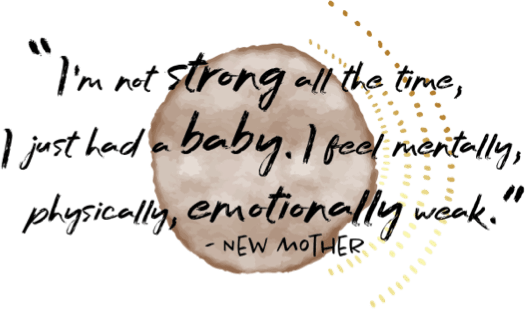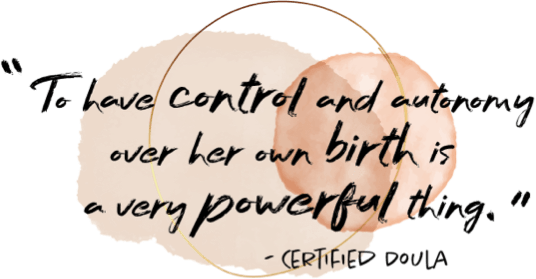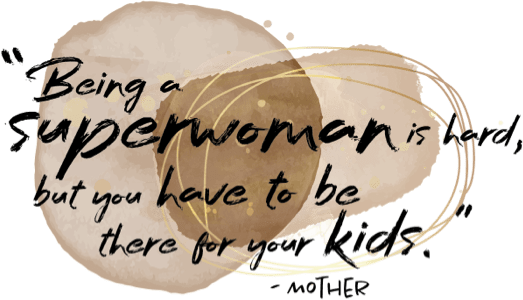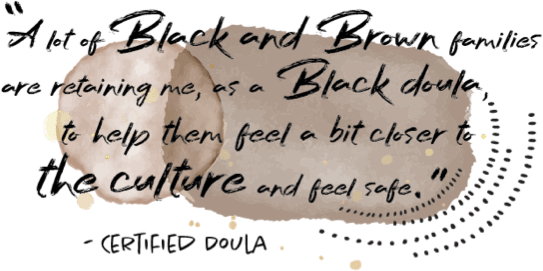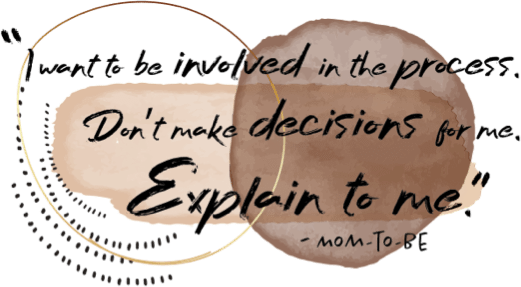We hear you, Mama.
Pregnancy can be an anxious time for any mother. But in the United States, misperceptions about the Black mother disproportionately affect her birth experiences and outcomes. It’s a crisis that income, education, and access to insurance can’t shield her from—because it’s the result of embedded structural and systemic racism and bias.

Othering the Black mother leads to unrealistic expectations of what she can tolerate. From being overlooked by clinicians to having pain mismanaged or ignored, or having birth plans and preferences dismissed, Black mothers’ lived experiences reveal a gap between health care providers’ treatment of women of color and the support required to deliver the respectful maternal care every woman deserves.
Community care can pick up where clinicians leave off, surrounding Black mothers with the support to prepare for and anticipate their own pregnancy journey.
BIRTH EXPERIENCES
We recently sat down with moms and moms-to-be, as well as community care providers including doulas, to discuss their pregnancy and birthing experiences. Here are some of the things we heard:

We’ve got your back.

Knowing how to make people feel heard and understood is a superpower—and that’s where community-care providers like doulas excel.
Community care returns us to our roots—the generations-old practice of women helping other women during pregnancy and childbirth. And it’s a relatively low-cost practice that’s research-proven to improve birth outcomes for mothers and their babies.

Evidence shows that community-based care can:
- Lighten mothers’ burdens
- Reduce care costs
- Improve maternal health outcomes
- Enhance patient experiences
- Give mothers greater control over their own birth process.
Community-based doulas are trained birth workers who provide non-clinical emotional, physical, and educational support before, during, and after birth. Particularly critical during labor and delivery, they serve as patient advocates while providing comfort and coaching. And the relationships many doulas establish with mothers enable them to provide ongoing care and support even through the “fourth trimester.”


